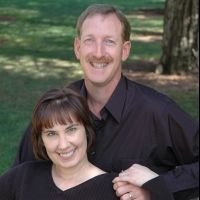Last Chapter by Floyd McClung: The Heart of Everything
His [Jesus] way of making disciples was to select and focus on a few, ask them to join him as he reached out to people, then teach them in more depth what his stories meant and how the message applied to their lives.
The Holy Spirit led Jesus, but Jesus also had a plan. He was not just spontaneously doing whatever came to mind that day. He was intentional. He carried out his plan from a whole different paradigm. If we want to birth movements and not just more meetings, we have to change our paradigm as well. Don't try to create a new wineskin and fill it with old wine. Don't rearrange the way you do worship services and call it a revolution.
Jesus bypassed the cumbersome religious structures and irrelevant worship practices of his day and started something living and organic. The word organic is a good one to describe a spontaneously reproducing simple-church movement because it describes something that grows naturally, without artificial additives. It consists of elements that exist together in natural relationships that make growth and multiplication possible.
Notice the way Jesus got the disciples exercising gifts of leadership from the outset, before they were ready. Jesus didn't wait for disciples to be born again, baptized, trained theologically, and supervised under a safe religious system with guaranteed controls before he involved them in leadership. He got them out telling others about him within a few weeks of being with him. He led the movement he began from underneath, very quickly involving the disciples in leadership assignments without mentioning positions or titles. He had a radically different paradigm from the religious leaders of his day-and of our day as well. After all, the journey of discipleship doesn't start when a person comes to faith in Christ, but long before.
By the way, have you ever asked yourself when the disciples actually were born again? Think of it this way: if you began a movement now the same way Jesus got things going in his day, it would mean telling everyone you meet about Jesus, watching who responds with keen interest, and then selecting a few people who are most open and investing lots of time in them. You would start to meet with this group of seekers in times of discussion over a meal. You would ask one of them to read a few short verses from the words of Jesus, another to lead a discussion about what Jesus meant and how his teaching applied to their lives, and still another to teach a new song they wrote.
You would encourage them to tell their family and friends what they were learning about Jesus. You would meet in their homes, not yours. You would want as many of their friends and family to sit in on the discussions as possible. When you would come together as a group around a meal, you would model a facilitative style of leadership that got everyone involved, carefully taking a back seat so you could encourage their development. You would be pleased as they quickly took ownership of what was happening.
You would have already met one-on-one with your disciples behind the scenes, asking different ones to take part in the group gatherings. You would ask each member of the group to help make it happen in different ways, and then you would coach them, seeking to instill in them leadership values that would prepare them to lead new communities as they sprang up. You would encourage them to gather their friends and family members and tell them about Jesus.
I have questioned Greg about when the discipleship relationship starts. He had the same answer as Floyd McClung. Long before someone is a believer. When you look at how Jesus did discipleship above, it's easy to see how simple it is. I think when we start overstructuring discipleship, that's when it gets difficult for us as well as the disciple. People are generally trustworthy. They want to please and succeed. As you start or run your small group, look at how much trust Jesus gave his disciples. Everyone had a role to play in the meetings. I'm not just talking about hosting. I mean leading different areas. This is how people grow the fastest, by actually being given an opportunity to try leading. Don't be a ministry hog by talking the whole time during the meeting, except for a question you throw out here and there. Remember, the point is discipleship, and it happens better when there is more than just a teacher/student format.
Blessings on this cloudy, breezy Friday.
Subscribe to:
Post Comments (Atom)




No comments:
Post a Comment